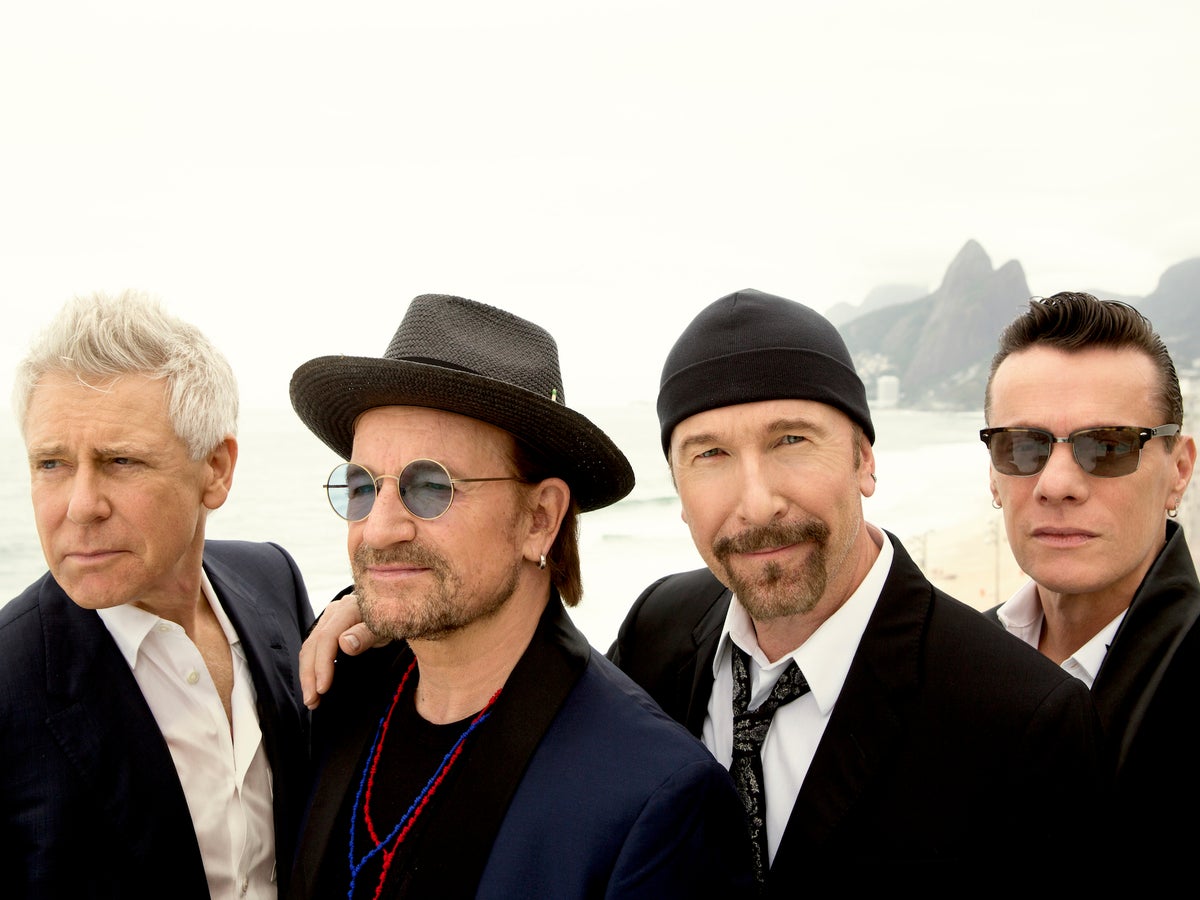
Just how intimate would you like your relationship with Bono to get? Because there are moments during U2’s latest release – a lo-fi reimagining of their stadium rockers – when his stadium-weary croon is so high in The Edge’s production mix that you can practically feel his stubble brushing your earlobes. Listening to Songs of Surrender with airpods almost made me reach for a Q-tip to wipe away his spittle from my eardrums.
The idea for the album – which features 40 unplugged versions of classics like “One”, “Beautiful Day” and “Pride (In the Name of Love)” alongside deeper cuts from the band’s long career – arose in the muffled mood of lockdown. Maybe the earnest, common room strumming and sombre piano would have resonated more powerfully had it been released back then, when time bent to make sense of such lengthy releases. But it’s 2023 now, and we need the wide-horizon howl and electric ambition of U2’s classic sound, not this sleepy faux-hipster slog.
That said, if you’re a U2 fan on a long, late-night drive with snoring passengers then Songs of Surrender will still offer a companionable campfire glow. It opens warmly with a piano-backed take on “One”. The song (from 1991’s Achtung Baby) was written about the band’s struggle to stay together but also reflected the tensions around German reunification (which took place between 1989 and 1991). Today, the micro-macro prayer still resonates and Bono’s tired tone reflects that of many global citizens hoping for conflict resolution.
But things take a sharp dip downhill with “Where the Streets Have No Name” (from The Joshua Tree, 1987). The drowsy electric piano and sighed vocals suck all the thrill out of a song that Bono, in 2018, said was all about “elevation, transcendence”. The same song that Rolling Stone magazine ranked at No 28 on its list of “100 Greatest Guitar Songs of All Time” really misses that guitar. Later, the band reduce the dirty-sparking riff of 1991’s “The Fly” to elevator muzak and stick a choir low into the mix of “Beautiful Day” (All That You Can’t Leave Behind, 2000) so it sounds like a version made to accompany early evening Sunday ITV. A strangely swung “Get Out of Your Own Way” bops along as though rearranged by a wanna-be-cool school music teacher. “With or Without You” (1987) loses so much of its devotional fire that it may as well be retitled “Take it Or Leave It”.
Bono’s USP is his preacher’s energy (or messiah complex to his detractors). His spiritual leanings and grandiosity are a perfect fit for the post-punk, call and response of The Edge’s delayed riffing. His bombastic sincerity and big-picture themes suit arenas, not rootsy storytelling. Some people – like Bruce Springsteen – can do both. And you can hear Bono channel his inner Boss on “Bad”, which features some candid falsetto moon-yipping (from The Unforgettable Fire, 1984).
That falsetto is harnessed to more potent effect on a grungy reworking of “Desire” (from Rattle and Hum, 1988). U2 finally seem to get sparking again. “Who’s Gonna Ride Your Wild Horses” (1991) retains its heart and benefits from a little weathered wisdom. The lyrics from “Walk On” (2001), originally about Burmese politician and Nobel Peace Prize laureate Aung San Suu Kyi “standing up for freedom”, have been rewritten to focus on Ukraine – although not in any memorable way that might allow it to rise above the coffee shop backdrop sound of The Edge’s fingerpicking.
Ultimately this is an album of shadow versions that leave you yearning for originals. It serves as a powerful reminder that some of those old recordings burned so bright that Bono could only sing them in shades.







